- HOME
- Cultural Explorer Itineraries
- Cultural Explorer Travel
- Cultural Explorer Books
- Cultural Explorer Art
- Cultural Explorer Auction Houses
- Travel, Culture and Books - Blog
- More
- England
- Europe
- United States
- Spain
- Denmark
- Germany
- England - Yorkshire
- England - London
- England - Durham
- England - Liverpool
- England - Stratford upon Avon
- Spain - Cadiz, Jerez, Madrid
- Spain - Barcelona
- Spain - Sevilla
- Spain - Malaga and Ronda
- France - Paris
- Boston and New Haven Logisitics - Itinerary, travel, accommodation
- Boston Freedom Trail, Tea Party and Cheers
- New Haven and Yale University
- Hartford - Mark Twain's House
- Boston Art Museums - MOFA and Isabella Stewart Gardner
- Harvard and MIT Museums
- Cultural Explorer Travel - Top 10 Museums in London
- Cultural Explorer Travel - Top 10 Museums Yorkshire
- Cultural Explorer Art - Top 10 Art Galleries in London
- Cultural Explorer Art - Top 10 Controversial Paintings
- Cultural Explorer Art - The Life of the Mona Lisa
- Cultural Explorer Art - The Bowes Museum - Norman Cornish and LS Lowry
- Cultural Explorer Art - Top 10 Art Galleries in Yorkshire
- Cultural Explorer Books - Top 15 Books about Art
- Cultural Explorer Books - From a North East American Trip
- Cultural Explorer Books - Top 10 Books about Spain
- Cultural Explorer Books - Top 10 Latin American Books
- Cultural Explorer Books - Top 10 Greek Myths Books
- Cultural Explorer Books - Top 15 United States Contemporary Fiction Books
- Cultural Explorer Books - Top 10 Non-Fiction about the US
- Cultural Explorer Books - Top 10 Japan Books
- Cultural Explorer - Top 10 Books about Humans
- Cultural Explorer Auction House - Sotheby's
- Cultural Explorer Auction House - Christies
- Cultural Explorer Auction House - Bonhams
- Cultural Explorer Auction House - Phillips
- ads.txt
- Terms and Conditions
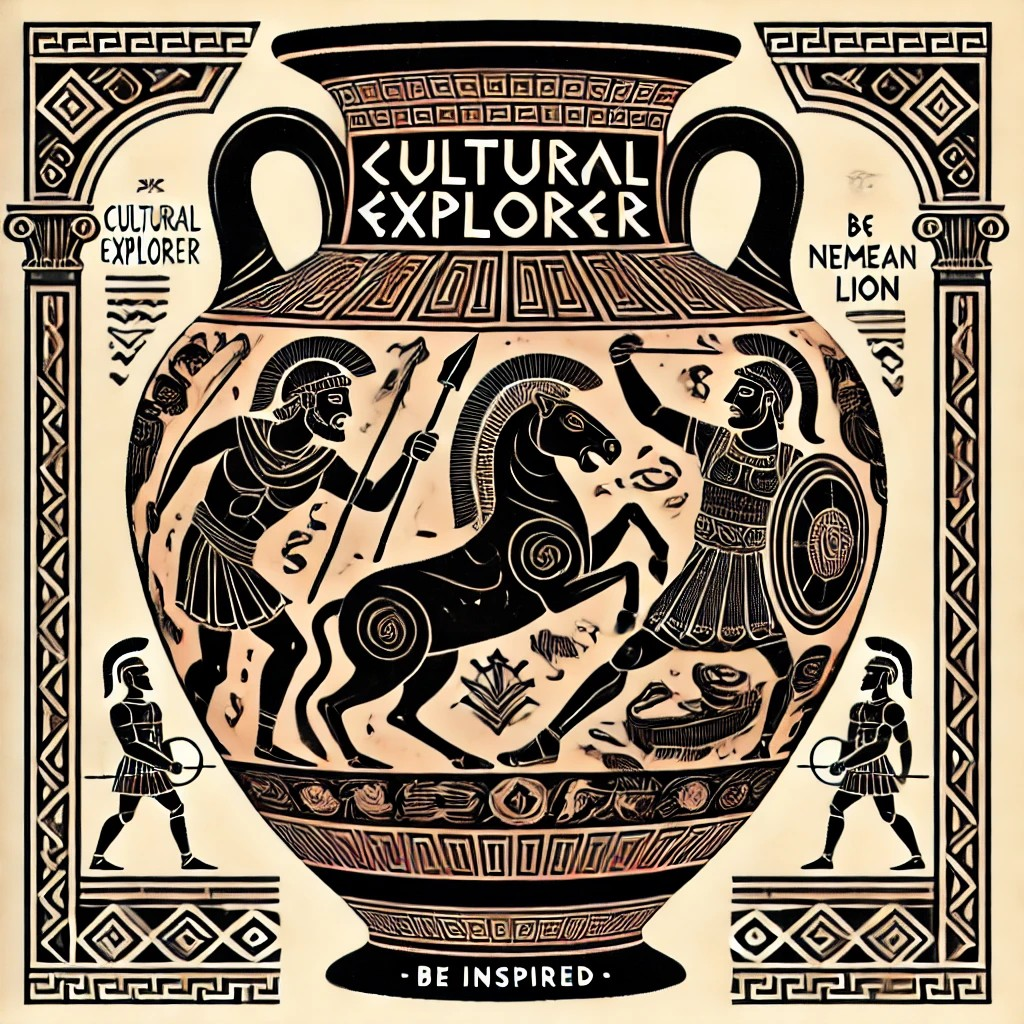
These are my Top 10 book about Humans - Who are we? Where did we come from?
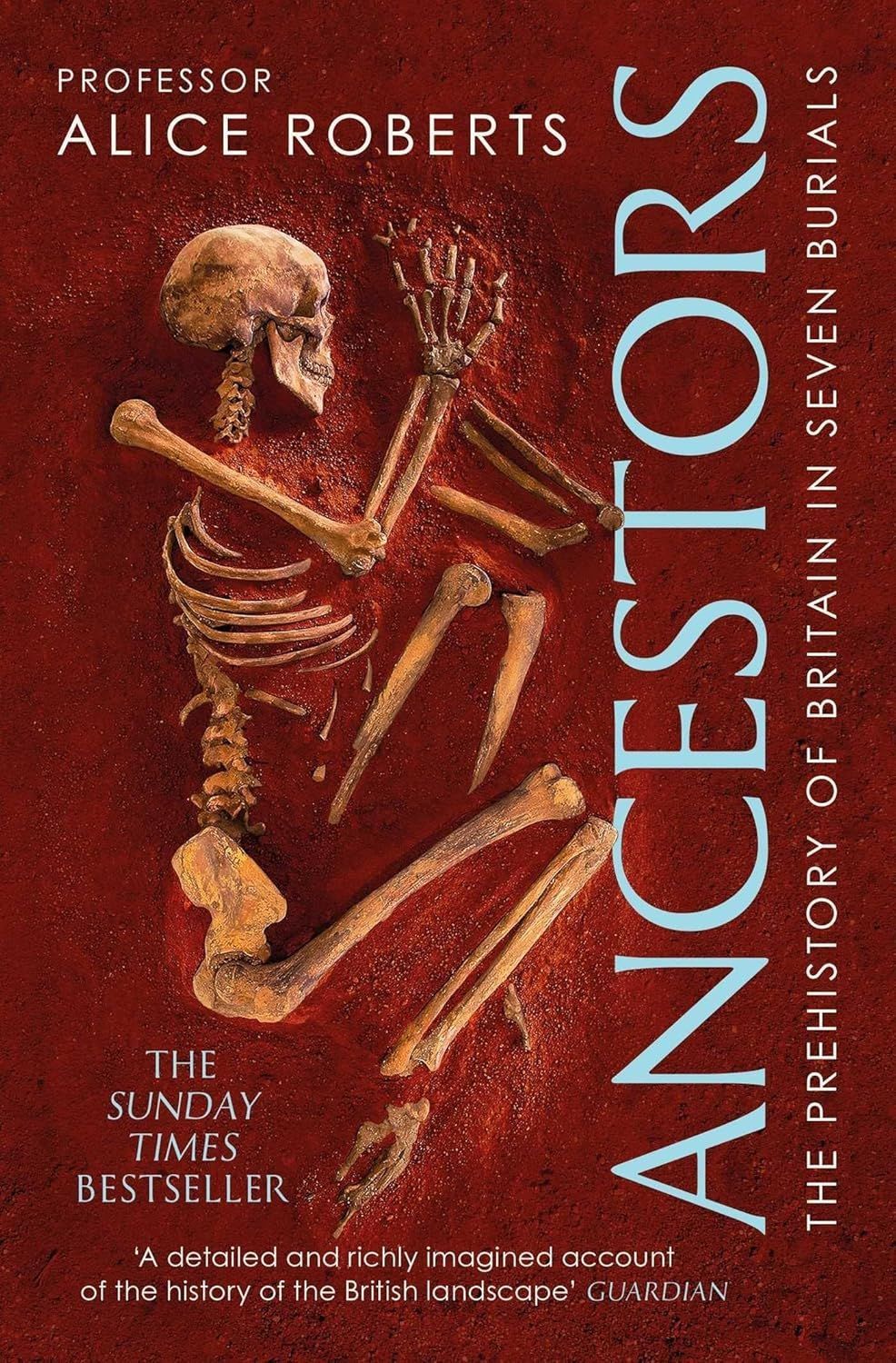
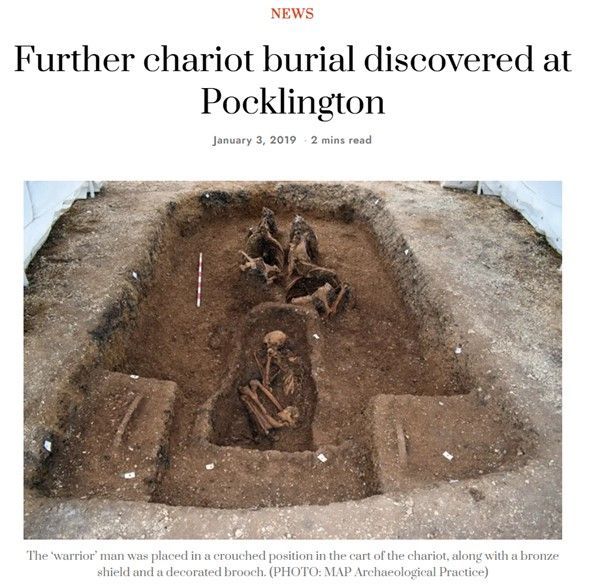
1. Ancestors by Alice Roberts
In Ancestors, Alice Roberts explores the lives of early Britons through archaeological discoveries, combining science and storytelling to reveal the fascinating history of the people who came before us. The book highlights significant sites and finds, including the Iron Age burial at Pocklington, where chariots and warriors were unearthed. Through these stories, Roberts brings the past to life, showing how ancient artifacts connect us to our distant relatives and their world.
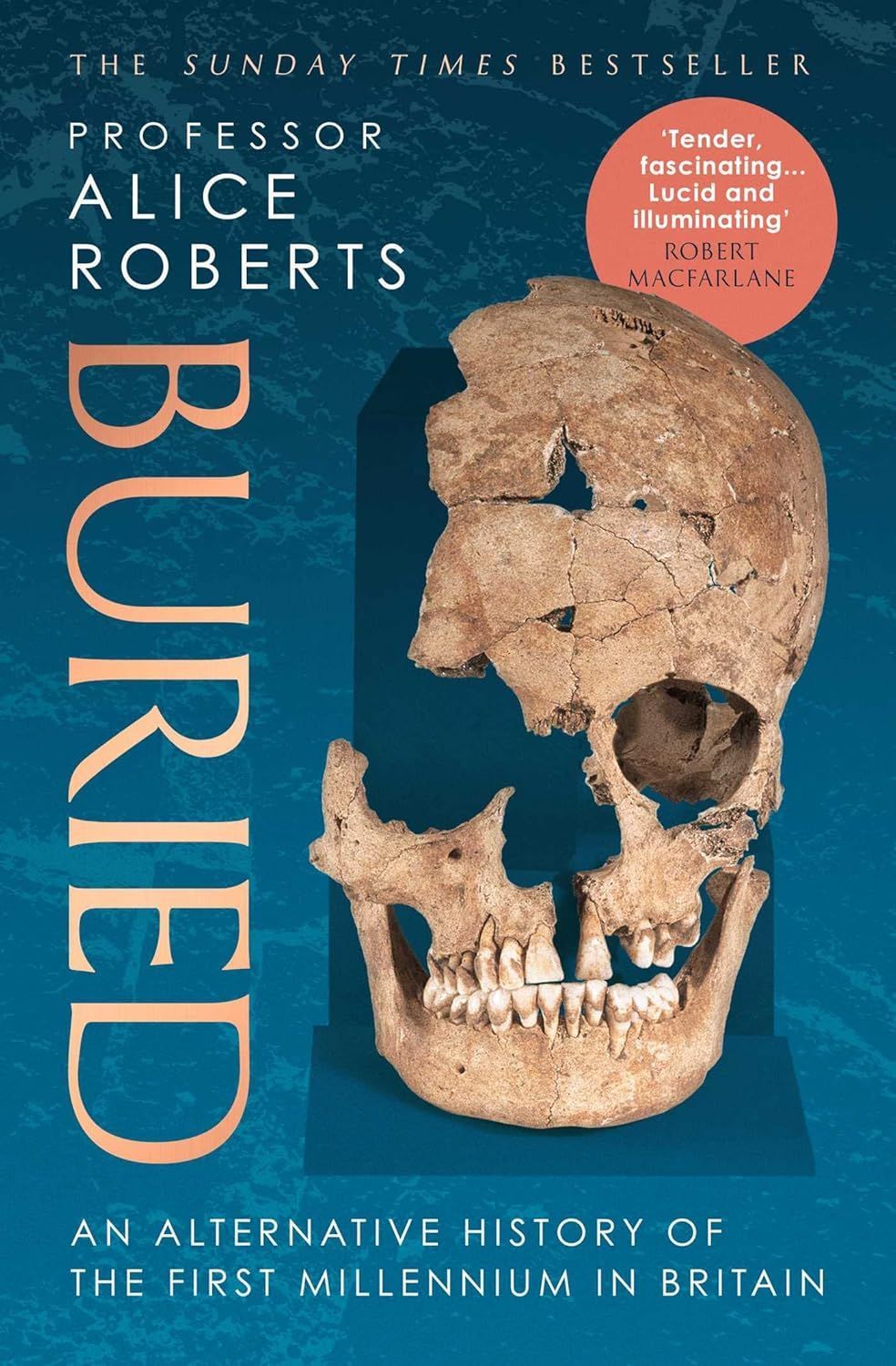
2. Buried by Alice Roberts
Buried focuses on death and burial practices in Britain’s ancient past, uncovering the beliefs and rituals of long-gone societies. Roberts delves into iconic discoveries like Stonehenge and the Amesbury Archer, nicknamed the "Arrow Man," whose grave offers a glimpse into Bronze Age life. By examining how people honored their dead, she reveals how burial sites hold keys to understanding their lives, beliefs, and cultures.
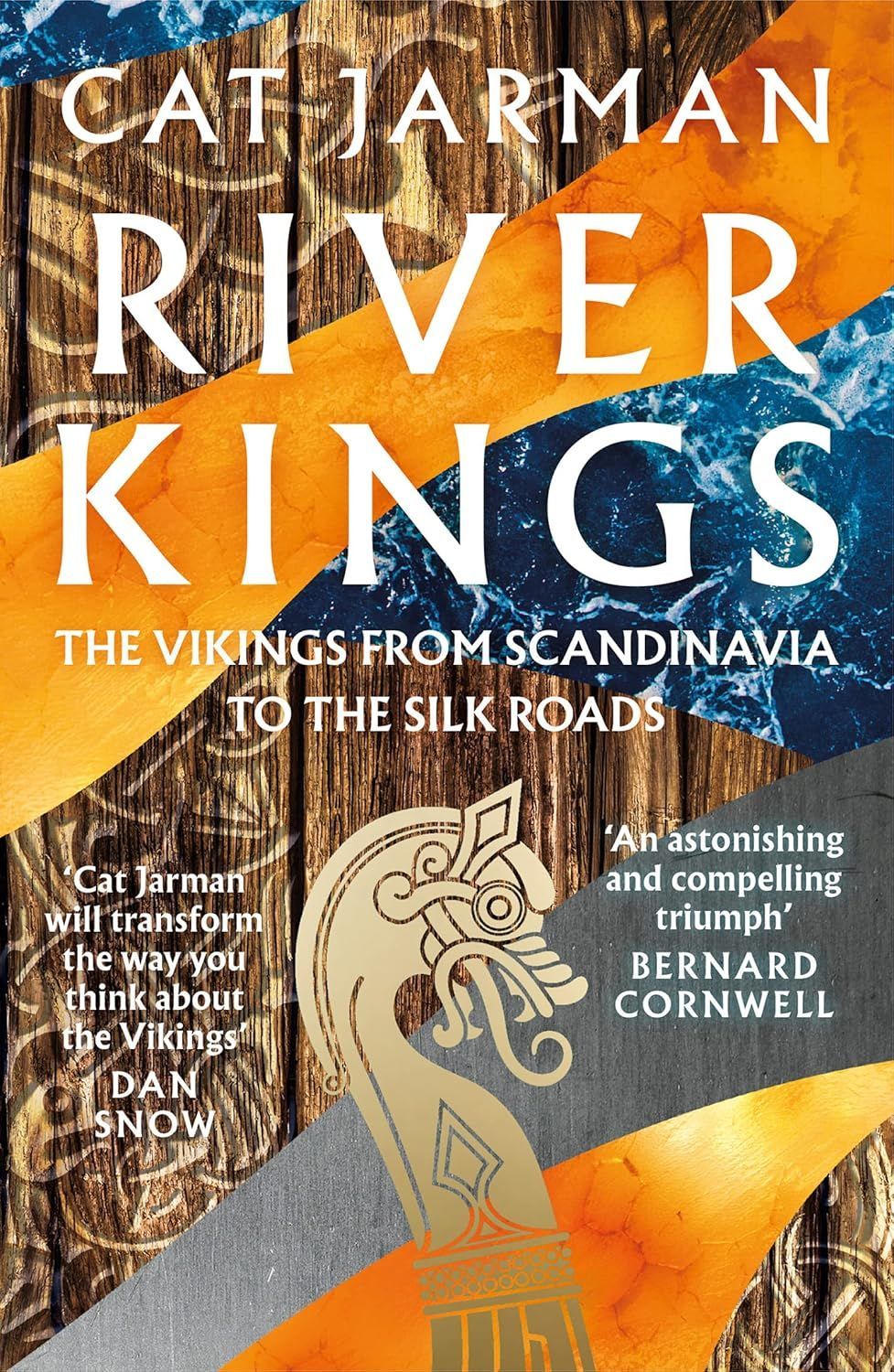
3. River Kings by Cat Jarman
In River Kings, Cat Jarman traces the journey of a small orange bead found in a Viking grave in Repton, England, to its origins in India. Through this single artifact, Jarman uncovers the vast trade networks of the Viking Age, spanning from Scandinavia to the Middle East and beyond. Her investigation delves into how objects, people, and ideas traveled across continents, shedding light on the connections between far-flung places like Repton, Sweden, and the Silk Road.
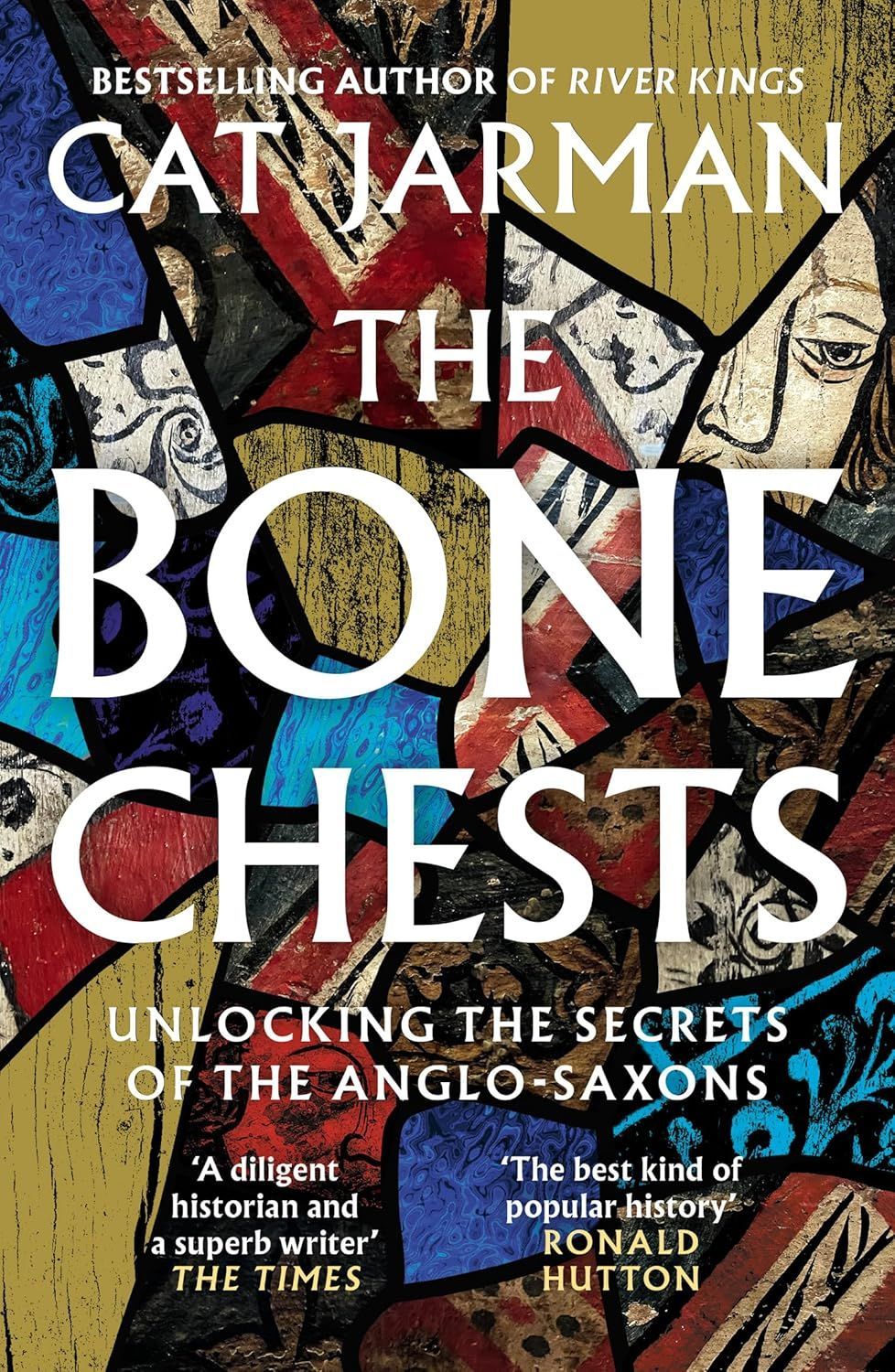
4. The Bone Chests by Cat Jarman
In The Bone Chests, Jarman investigates the mystery of medieval relics scattered across England, focusing on the lost bones of Saint Swithun, a revered figure in Winchester. Her work explores the chaotic history of these sacred remains, tracing their journeys through times of religious upheaval and destruction. The book takes readers to locations like Winchester Cathedral and other significant sites, uncovering the stories behind the movement and meaning of human relics in medieval England.
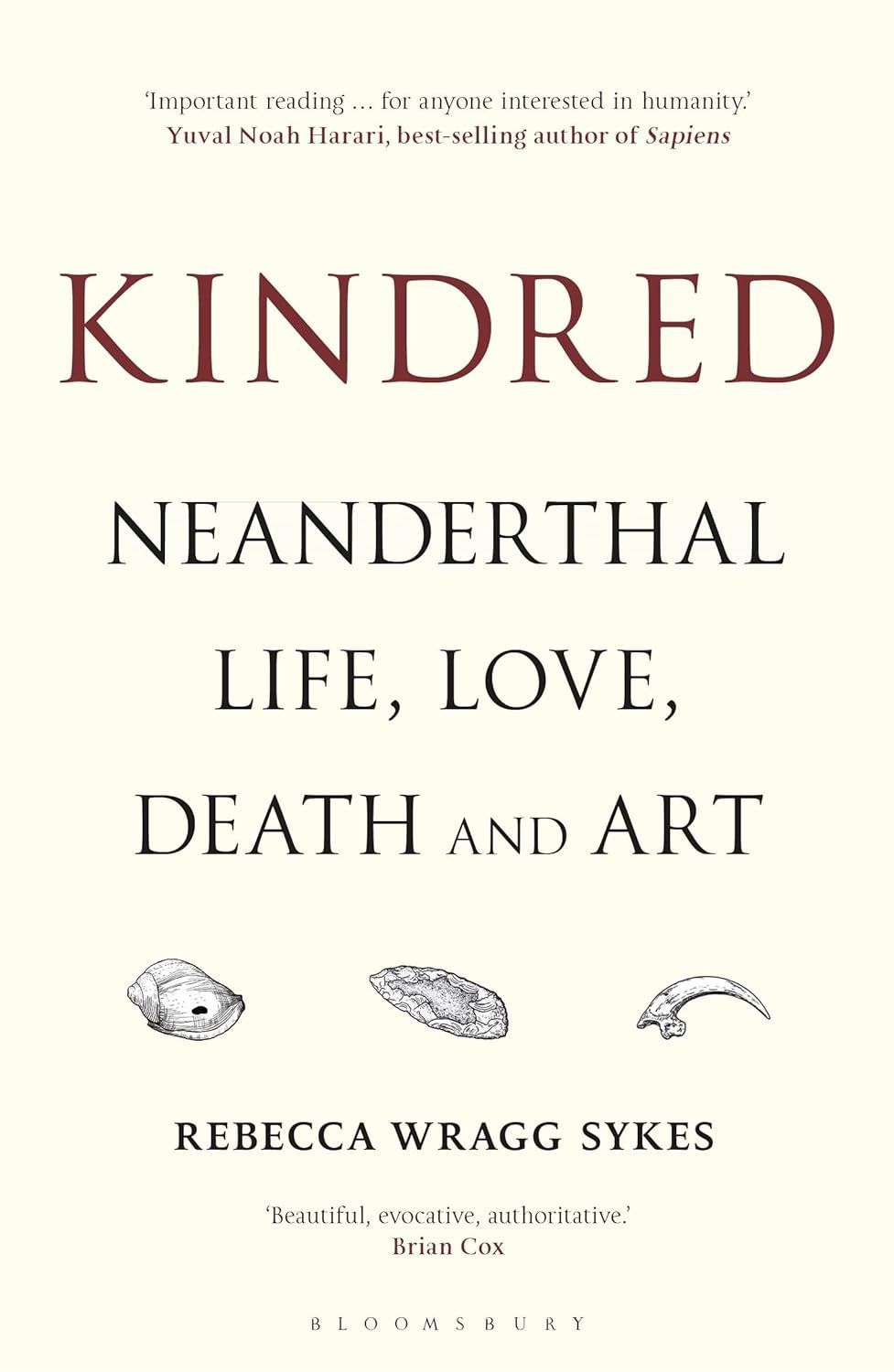
5. Kindred: Neanderthal Life, Love, Death and Art by Rebecca Wragg Sykes offers a fascinating look into the lives of Neanderthals, challenging stereotypes of them as primitive and highlighting their complexity. The book explores archaeological sites across Europe, such as El Sidrón in Spain, where DNA evidence has revealed family bonds, and Germany’s Neander Valley, where the first Neanderthal remains were discovered. It also discusses the significance of sites like Great Orme in Llandudno, Wales, showcasing their connection to ancient landscapes. Through these locations, Sykes paints a vivid picture of Neanderthals as skilled toolmakers, artists, and survivors of harsh environments.
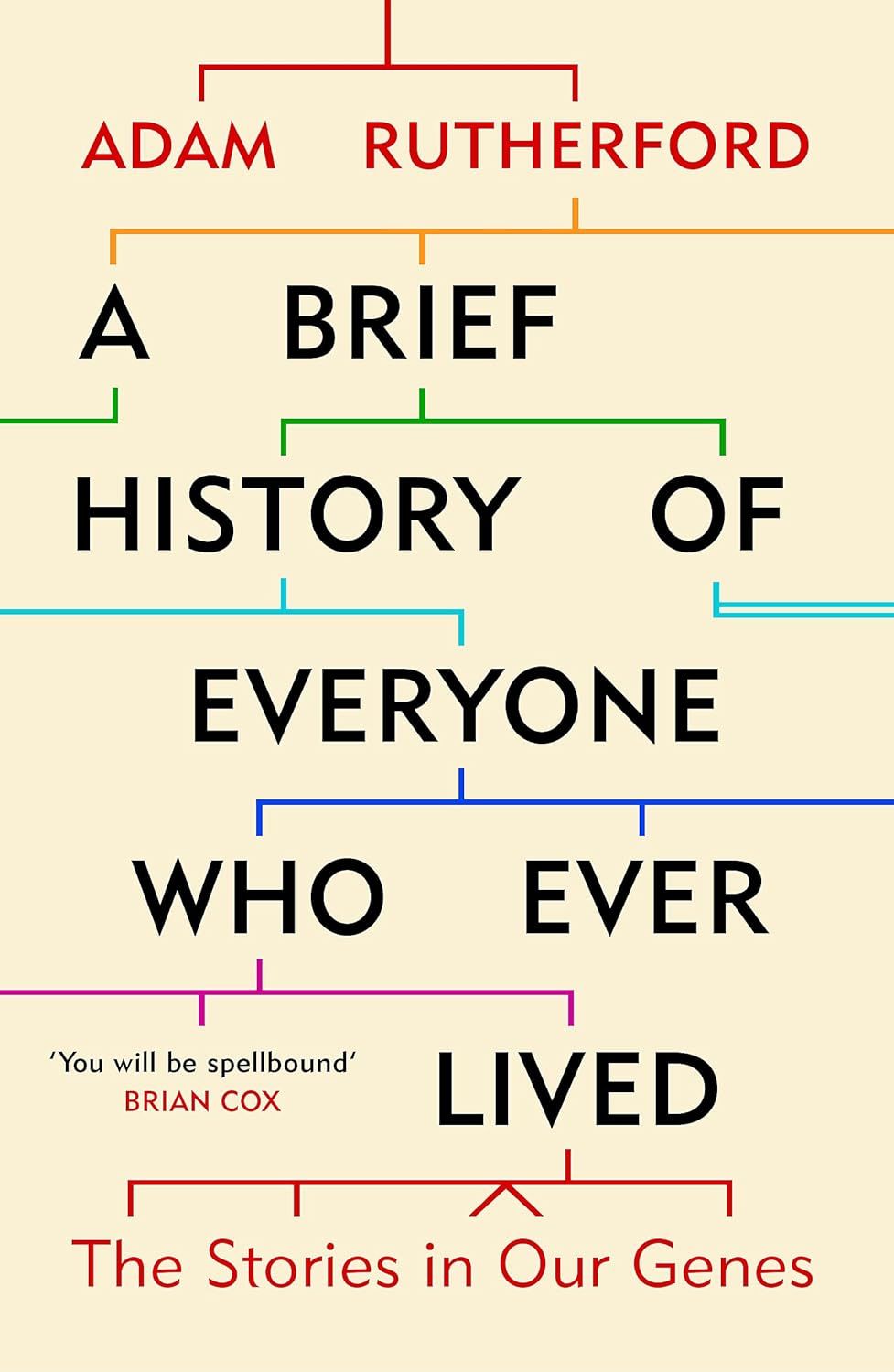
6. A Brief History of Everyone Who Ever Lived by Adam Rutherford explores the fascinating story of human evolution through the lens of genetics. Rutherford delves into how our genes shape us, tracing our ancestry back through millennia. One interesting topic in the book is the history of redheads. Rutherford discusses how the gene for red hair originated around 20,000 years ago and became prevalent in certain populations, particularly in Northern Europe. He explains how the genetic mutation that causes red hair also has ties to other traits, such as fair skin, which may have helped early humans adapt to life in northern climates. Rutherford also references the ancient Romans’ view of the British and Germanic tribes, calling them "milk drinkers." This term referred to the fact that these tribes drank milk, unlike the Romans, who largely avoided dairy in favor of wine and other fermented beverages. This cultural difference, as described by Rutherford, highlights the diversity of human diets and lifestyles throughout history, influenced by genetics and geography.
The late esteemed English actor Christopher Lee traced his ancestry directly to Charlemagne, buy geneticist Adam Rutherford states that “literally everyone” with European ancestry is directly descended from Charlemagne.
Rutherford also writes about Sir Francis Galton, who was Charles Darwin's cousin, and inspired by his reading of Darwin, became the founder of eugenics
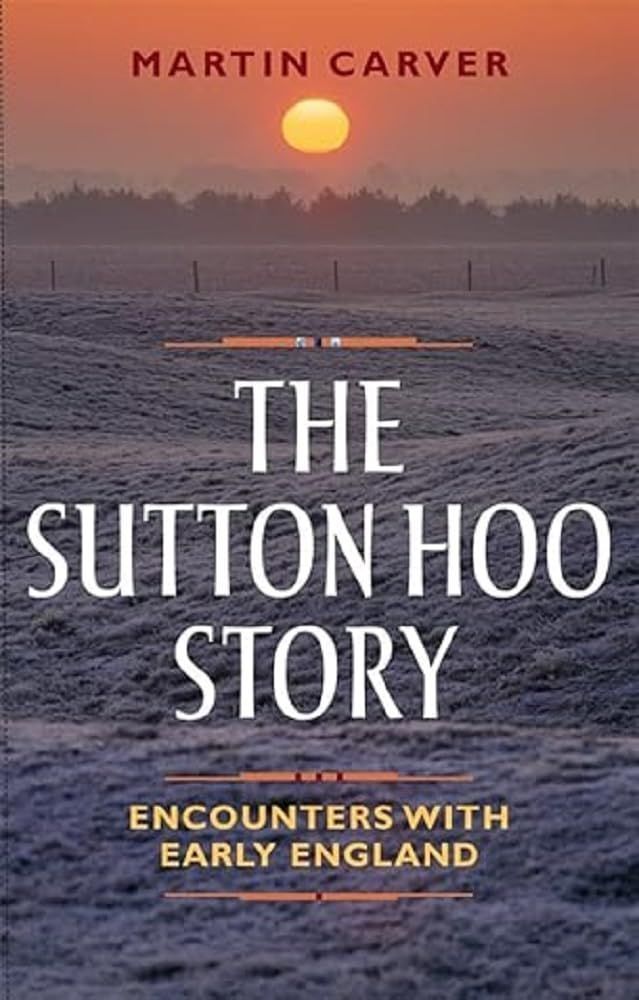
7. The Sutton Hoo Story: Encounters with Early England by Martin Carver explores the famous archaeological site of Sutton Hoo, where an Anglo-Saxon burial ship was discovered in 1939. Carver, a leading expert on the site, takes readers through the history of the excavation and the significance of the finds, such as treasures and artifacts, which shed light on early English history. The diagrams in the book play a crucial role in helping readers visualise the burial site and the artifacts found there. They offer detailed reconstructions of the ship, burial chamber, and items discovered, making the complex archaeological details more accessible and easier to understand.
Martin Carver is currently involved in building a replica boat based on the Sutton Hoo ship. This project aims to provide a tangible connection to the past, allowing modern viewers to experience what it may have been like to sail in such a vessel. The replica is an exciting and hands-on way to bring the history of Sutton Hoo to life.
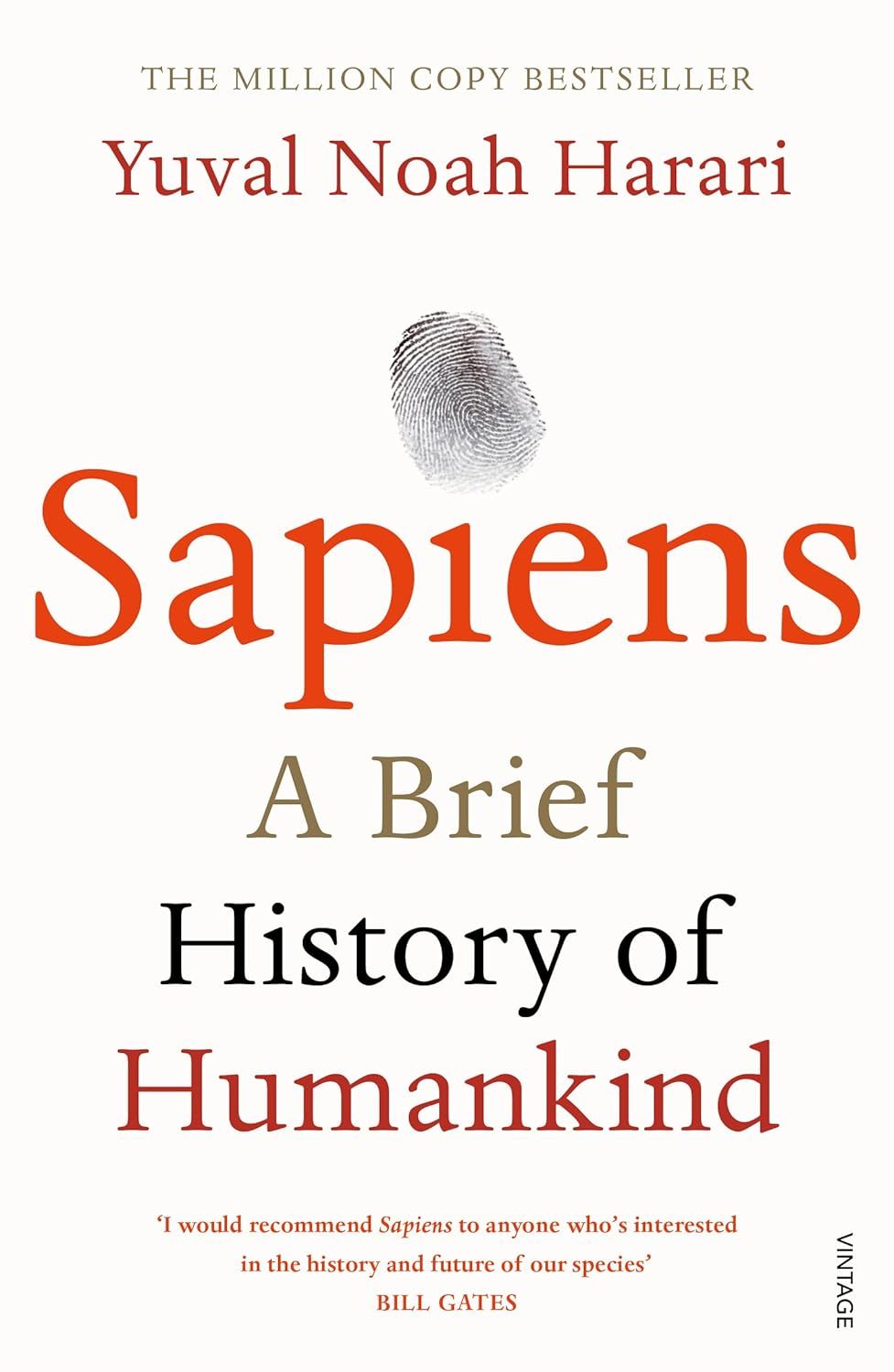
8. Sapiens: A Brief History of Humankind by Yuval Noah Harari is a thought-provoking book that explores the history of humanity, from the earliest days of Homo sapiens to the modern world. It examines key moments in human development, such as the Cognitive Revolution, the Agricultural Revolution, and the rise of empires and capitalism. Harari delves into how humans have shaped and been shaped by religion, politics, and technology, offering fresh insights into why we live the way we do today. It's an engaging and accessible read that encourages readers to reflect on our shared past and future.
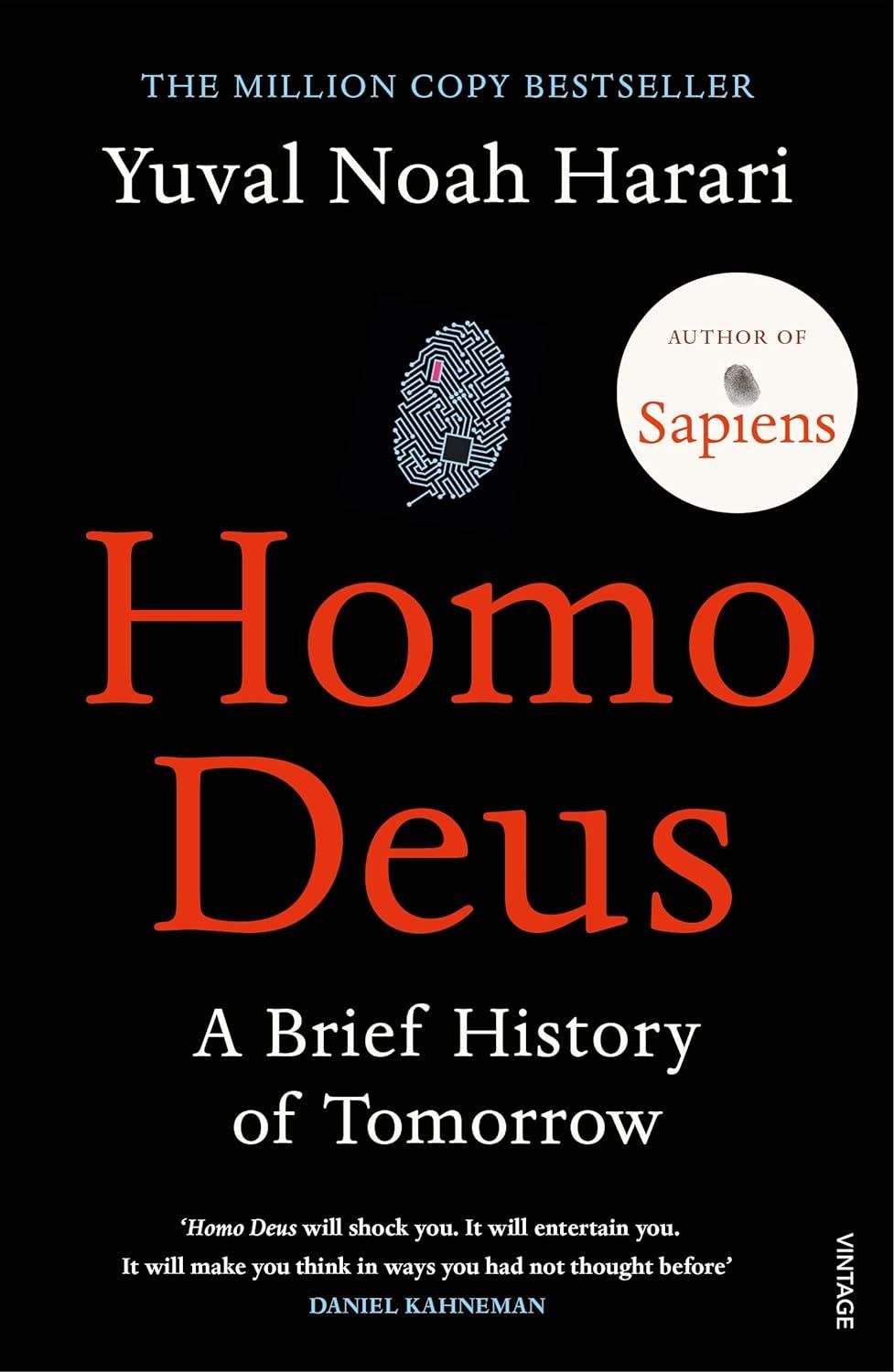
9. Homo Deus: A Brief History of Tomorrow by Yuval Noah Harari explores the future of humanity as we move beyond the challenges of survival, such as famine, disease, and war, which have historically dominated human concerns. Harari discusses how advances in technology, artificial intelligence, and biotechnology could redefine what it means to be human, potentially leading to new goals like immortality, happiness, and the pursuit of god-like abilities. The book raises profound questions about ethics, inequality, and the implications of humanity's quest for power over nature and itself.
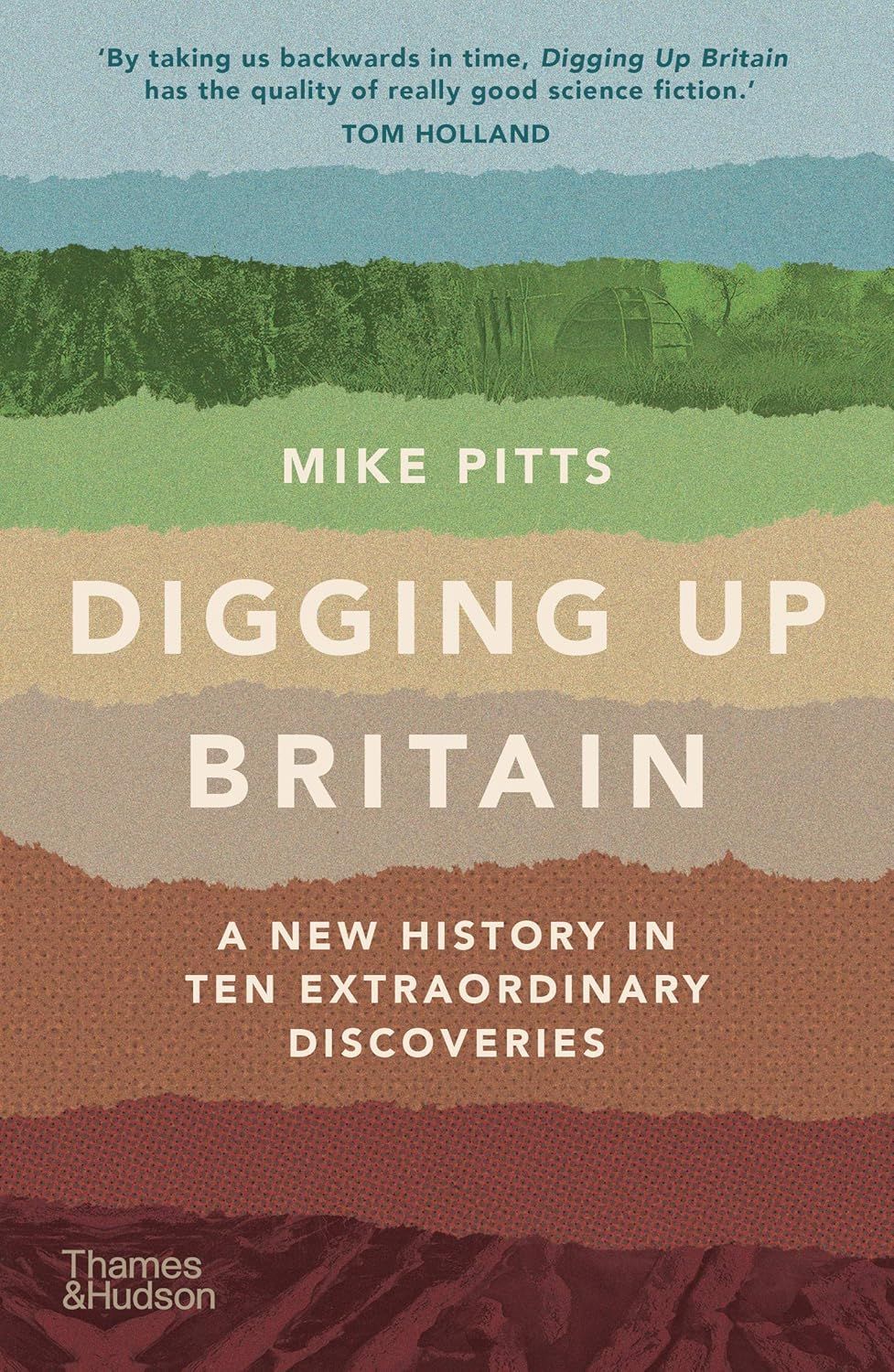
10. Digging Up Britain: A New History in Ten Extraordinary Discoveries by Mike Pitts offers an engaging journey through British history, told through ten remarkable archaeological finds. From prehistoric treasures to Roman ruins and beyond, Pitts explores how these discoveries reveal the lives of people in Britain over thousands of years. The book combines expert insights with storytelling, making the history accessible and exciting for readers interested in archaeology and the nation's past.

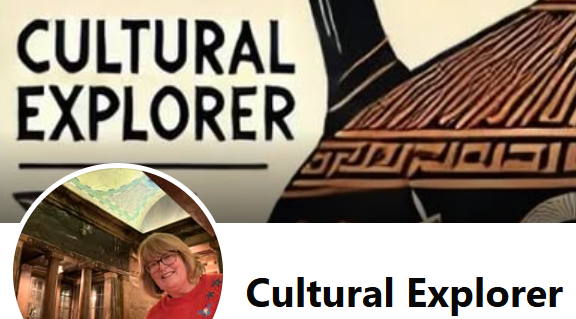

Facebook page: https://www.facebook.com/SarahCulturalExplorer
Instagram: https://www.instagram.com/sarahculturalexploreruk
My Bio: Travel opens doors to art, museums, and galleries, where stories come alive. I love books, paintings, collectors, and auctions - the treasures connecting us to history, creativity, and culture. Enjoy regular posts on my facebook page.
Email: culturalexploreruk@gmail.com